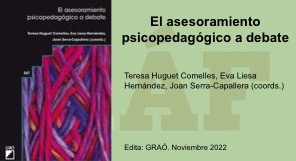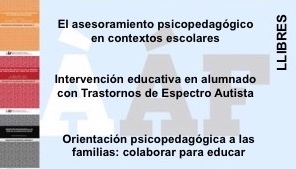Aprender a ser maestros en Cataluña y Finlandia: aspectos comunes y diferenciadores
DOI:
https://doi.org/10.32093/ambits.vi60504968Palabras clave:
prácticum, futuros maestros, mentores, indagaciónResumen
El prácticum supone un elemento fundamental e insustituible en la formación inicial de los maestros, permitiéndoles relacionar teoría y práctica y evidenciar competencias profesionales. A nivel internacional, existe un acuerdo de la importancia de las prácticas en los centros escolares como período formativo. En este artículo explicamos su enfoque en el contexto finlandés y catalán, focalizando en aquellos elementos diferenciadores y aquellos que son comunes. Se tratan temas cruciales, como la estructura del prácticum, las escuelas formadoras, la competencia indagadora durante el prácticum, las experiencias y actividades formativas en la escuela, la supervisión y mentoría durante el proceso, así como la evaluación de este periodo formativo. Finalmente, se pretende abrir un debate y promover la reflexión sobre aspectos claves que pueden ayudar a repensar e introducir mejoras en la formación de los futuros docentes.
Citas
Agència per a la Qualitat del Sistema Universitari de Catalunya. (2009). Guia per a l’avaluació de competències en el pràcticum de mestre. Barcelona: Author.
Ahonen, E; Pyhältö, K; Pietarinen, J, & Soini, T. (2015). Student teachers’ key learning experiences–Mapping the steps for becoming a professional teacher. International Journal of Higher Education, 4(1), 151-165. https://doi.org/10.5430/ijhe.v4n1p151.
Baan, J., Gaikhorst, L., van't Noordende, J., & Volman, M. (2019). The involvement in inquiry-based working of teachers of research-intensive versus practically oriented teacher education programmes. Teaching and Teacher Education, 84, 74-82. https://doi.org/10.1016/j.tate.2019.05.001
Badia, A., Konstantinidis, A., & Baan, J. (2022). The identity of the teacher as an inquirer. In C. Monereo (Ed.). The identity of education professionals: Positioning, training & innovation (pp. 109-131). Charlotte, NC.
Badia, A., Becerril, L., & Gomez, M. (2021). Four types of teachers’ voices on critical incidents in teaching. Teacher Development, 25(2), 120–135.https://doi.org/ 10.1080/13664530.2021.1882549
Beauchamp, C., & Thomas, L. (2009). Understanding teacher identity: An overview of issues in the literature and implications for teacher education. Cambridge journal of education, 39(2), 175-189. https://doi.org/10.1080/03057640902902252
Bendtsen, M., Eklund, G., Forsman, L., & Pörn, M. (2019). Student teachers’ experiences of action research-based projects: two cases within pre-service teacher education in Finland. Educational Action Research, 29(5), 707-721. https://doi.org/10.1080/09650792.2019.1684969
Byman, R., L. Krokfors, A. Toom, K. Maaranen, T. Jyrhämä, H. Kynäslahti, & P. Kansanen. (2009). Educating Inquiry-oriented Teachers: Students’ Attitudes and Experiences Towards Research-based Teacher Education. Educational Research and Evaluation 15(1), 79–92. https://doi.org/10.1080/13803610802591808.
Cain, T., Brindley, S., Brown, C., Jones, G., & Riga, F. (2019). Bounded decision‐making, teachers’ reflection and organisational learning: How research can inform teachers and teaching. British Educational Research Journal, 45(5), 1072-1087. https://doi.org/10.1002/berj.3551
Canelo, J., & Liesa, E. (2020). Els incidents crítics a les aules de Pràcticum universitari. Àmbits de Psicopedagogia i Orientació, (52), 43-56. https://doi.org/10.32093/ambits.vi52.2115
Cian, H., Dsouza, N., Lyons, R., & Cook, M. (2017). Influences on the development of inquiry-based practices among preservice teachers. Journal of Science Teacher Education, 28(2), 186-204. https://doi.org/10.1080/1046560X.2016.1277832
Contreras, N., Liesa, E., & Giralt-Romeu, M. (2024). How pre-service teachers change their view of forms of inquiry after participating in an inquiry-based practicum. Teaching and Teacher Education, 140, 104478. https://doi.org/10.1016/j.tate.2024.104478
Cordingley, P. (2008). Research and evidence-informed practice: Focusing on practice and practitioners. Cambridge Journal of Education, 38(1), 37-52. https://doi.org/10.1080/03057640801889964.
Duran, D., Corcelles, M., Flores, M., & Miquel, E. (2019). Changes in attitudes and willingness to use co-teaching through pre-service teacher training experiences. Professional Development in Education, 46(5), 770-779. https://doi.org/10.1080/19415257.2019.1634631
Flores, M. A. (2018). Linking teaching and research in initial teacher education: knowledge mobilization and research-informed practice. Journal of Education for Teaching, 44(5), 621-636. https://doi.org/10.1080/02607476.2018.1516351.
Giralt-Romeu, M., Liesa, E., Mayoral, P., & Becerril, L. (2020). Student teachers' positioning with regard to their key learning experiences in the first practicum. Quaderns de psicologia, 22(2), 0004.
Giralt-Romeu, M., Liesa, E., & Castelló, M. (2021). I research, you research: do future teachers consider themselves researchers?(Yo investigo, tú investigas;¿ se consideran investigadores los futuros maestros?). Journal for the Study of Education and Development, 44(3), 586-622. https://doi.org/10.1080/02103702.2020.1759001
Hattie, J., & Timperley, H. (2007). The power of feedback. Review of educational research, 77, 81-112. https://doi.org/10.3102/003465430298487
Heikonen, L., Toom, A., Pyhältö, K., Pietarinen, J., & Soini, T. (2017). Student-teachers’ strategies in classroom interaction in the context of the teaching practicum. Journal of Education for Teaching, 43(5), 534-549. https://doi.org/10.1080/02607476.2017.1355080
Hennissen, P., Crasborn, F., Brouwer, N., Korthagen, F., & Bergen, T. (2011). Clarifying pre-service teacher perceptions of mentor teachers’ developing use of mentoring skills. Teaching and teacher education, 27, 1049-1058. https://doi.org/10.1016/j.tate.2011.03.009
Jakku-Sihvonen, R., & Niemi, H. (2006). Research-based teacher education in Finland: Reflections by Finnish teacher educators (Vol. 25). Turku, Finland: Suomen Kasvatustieteellinen Seura.
Jyrhämä, R., & Maaranen, K. (2012). Research Orientation in a Teacher's Work. In H. Niemi, A. Toom, & A. Kallioniemi (Eds.), Miracle of education: The Principles and Practices of Teaching and Learning in Finnish Schools (pp. 97-111).
Kansanen, P., Tirri, K., Meri, M., Krokfors, L., Husu, J., & Jyrhämä, R. (2000). Teachers’ pedagogical thinking: Theoretical landscapes, practical challenges.
Kansanen, P. (2005). The idea of research-based teacher education. Schulbegleiforschung. Erwatungen-Ergebnisse-Wirkungen.
Körkkö, M., Kyrö-Ämmälä, O., & Turunen, T. (2016). Professional development thought reflection in teacher education. Teaching and Teacher Education, 55, 198–206. https://doi.org/10.1016/j.tate.2016.01.014
Korthagen , F. 2004 . In search of the essence of a good teacher: Towards a more holistic approach in teacher education . Teaching and Teacher Education , 20,77 – 97.
LaBoskey, V. K., & Richert, A. E. (2015). Self- study as a means for urban teachers to transform academics. Studying Teacher Education, 11(2), 164e179. https://doi.org/10.1080/17425964.2015.1045774.
Maaranen, K., & Stenberg, K. (2017). Portraying reflection: The contents of student teachers’ reflection on personal practical theories and practicum experience. Reflective Practice, 18(5), 699-712. https://doi.org/10.1080/14623943.2017.1323729
Manderstedt, L., Viklund, S., Palo, A., & Lillsebbas, H. (2023). Meeting eye to eye: the power relations in triadic mentoring of the degree project in teacher education. Mentoring & Tutoring: Partnership in Learning, 31(4), 512-531 https://doi.org/10.1080/13611267.2023.2224256
Martín, P., García, M. L., & Mena, J. (2022). El Prácticum en el Grado de Maestro/a de Educación Infantil: análisis de diarios docentes. Revista complutense de educación 33(1) 131-140. https://doi.org/10.5209/RCED.73838
Mauri, T., Onrubia, J., Colomina, R., & Clarà, M. (2019). Sharing initial teacher education between school and university: participants’ perceptions of their roles and learning. Teachers and Teaching, 25(4), 469-485. https://doi.org/10.1080/13540602.2019.1601076
Mena, J., Hennissen, P., & Loughran, J. (2017). Developing pre-service teachers' professional knowledge of teaching: The influence of mentoring. Teaching and teacher education, 66, 47-59. https://doi.org/10.1016/j.tate.2017.03.024
Miquel, E. & Duran, D., (2017). Peer learning network: implementing and sustaining cooperative learning by teacher collaboration. Journal of education for teaching, 43 (3), 349–360. https://doi.org/10.1080/02607476.2017.1319509
Mtika, P., Robson, D., & Fitzpatrick, R. (2014). Joint observation of student teaching and related tripartite dialogue during field experience: Partner perspectives. Teaching and teacher education, 39, 66-76.https://doi.org/10.1016/j.tate.2013.12.006
Niemi, H., & Nevgi, A. (2014). Research studies and active learning promoting professional competences in Finnish teacher education. Teaching and Teacher Education, 42, 131–142. https://doi.org/10.1016/j.tate.2014.07.006.
Rytivaara, A. and Kershner, R. (2012). Co-teaching as a context for teachers’ professional learning and joint knowledge construction. Teaching and teacher education, 28, 999–1008. https://doi.org/10.1016/j.tate.2012.05.006
Saariaho, E., Pyhältö, K., Toom, A., Pietarinen, J., & Soini, T. (2016). Student teachers’ self-and co-regulation of learning during teacher education. Learning: Research and Practice, 2(1), 44-63. https://doi.org/10.1080/23735082.2015.1081395
Schön, D. A. (2017). The reflective practitioner: How professionals think in action. Routledge.
Spooner-Lane, R. (2017). Mentoring beginning teachers in primary schools: research review. Professional Development in Education, 43(2), 253-273. https://doi.org/10.1080/19415257.2016.1148624
Toom, A., Husu, J., & Patrikainen, S. (2015). Student teachers’ patterns of reflection in the context of teaching practice. European Journal of Teacher Education, 38(3), 320-340. https://doi.org/10.1080/02619768.2014.943731
Vieira, F., Flores, M. A., da Silva, J. L. C., Almeida, M. J., & Vilaça, T. (2021). Inquiry-based professional learning in the practicum: Potential and shortcomings. Teaching and Teacher Education, 105, 103429. https://doi.org/10.1016/j.tate.2021.103429
Wiseman, A. W. (2010). The uses of evidence for educational policymaking: Global contexts and international trends. Review of Research in Education, 34(1), 1-24. https://doi.org/10.3102/0091732X09350472.
Zeichner, K. (2010). Rethinking the connections between campus courses and field experiences in college-and university-based teacher education. Journal of teacher education, 61(1-2), 89-99. https://doi.org/10.1177/0022487109347671
Zhang, X. H. (2016). The Professional Identity of Pre-Service Teachers: Structure and Factors. Doctoral dissertation, Beijing Normal University, Beijing.
Zwart, R. C., Smit, B., & Admiraal, W. (2015). A closer look at teacher research: A review study into the nature and value of research conducted by teachers. Pedagogische Studies, 92(2), 131-149.

Descargas
Publicado
Número
Sección
Licencia
Derechos de autor 2024 AMBITSAAF; Natalia Contreras González, Eva Liesa Hernández, Paula Mayoral Serrat, Auli Toom

Esta obra está bajo una licencia internacional Creative Commons Atribución-NoComercial-SinDerivadas 4.0.
Los autores/as conservan los derechos de autor y conceden a la revista el derecho de primera publicación de la obra, registrada bajo una licencia Creative Commons Reconeixement-NoComercial-Sense Obra Derivada. Esta licencia permite la descarga de las obras y que se puedan compartir con otros siempre que se reconozca la autoría, pero no permite que se modifiquen de ninguna forma ni ser utilizadas con finalidad comercial.














